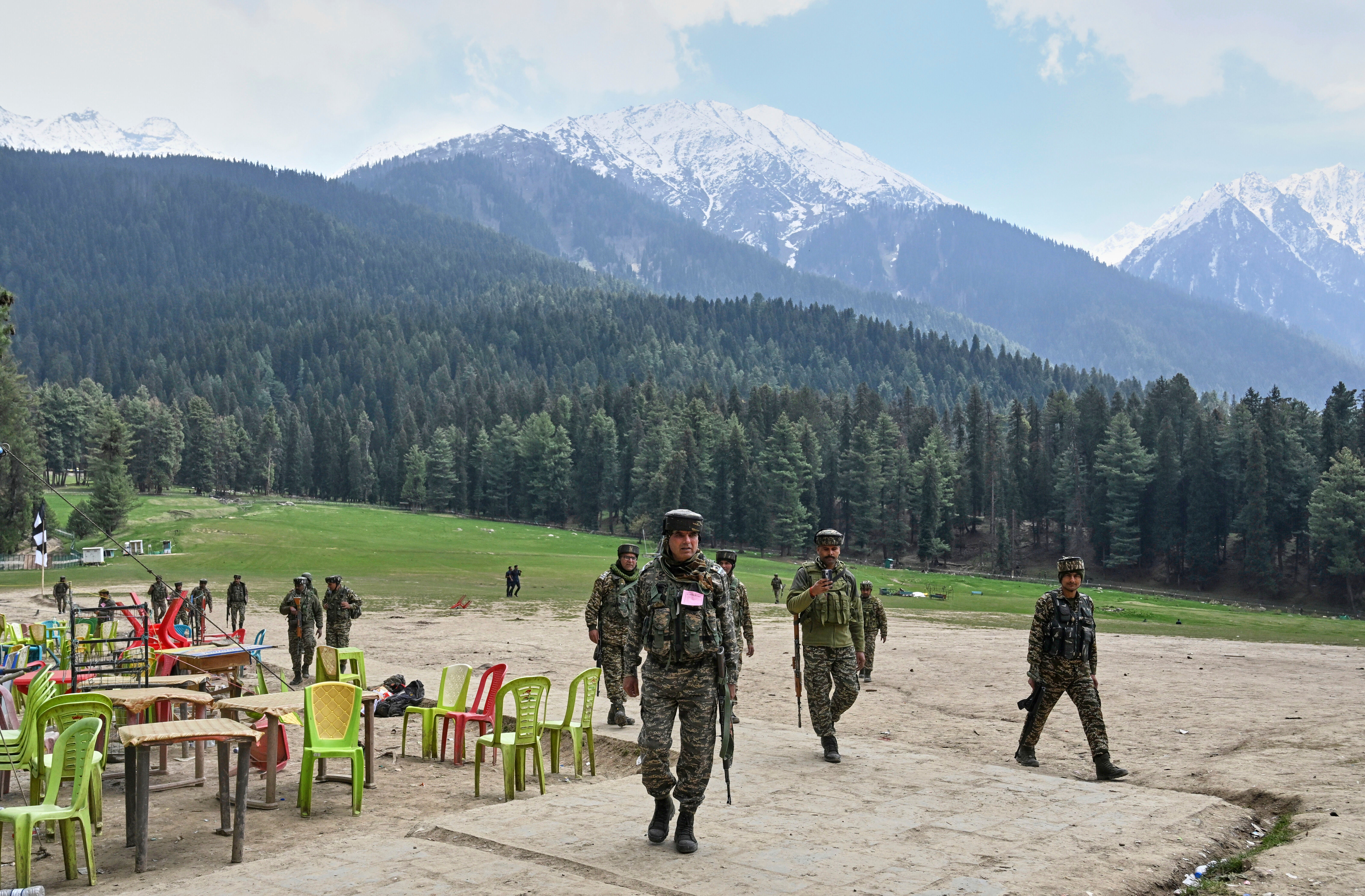Pakistan warns ceasefire with India could collapse over Indus Water Treaty
India’s unilateral suspension of river sharing deal remains in place despite ceasefire
Pakistan’s deputy prime minister warned the fragile ceasefire with India could fall apart if the Indus Water Treaty dispute was not resolved, calling New Delhi’s decision to suspend the river sharing agreement an “act of war”.
India’s unilateral suspension of the treaty in the wake of last month’s terror attack in Kashmir is one of the several punitive measures that remain in place despite the neighbour’s reaching a ceasefire deal on Saturday.
“If it is not reversed, then this will amount to an act of war,” Ishaq Dar told CNN on Monday, “because Pakistan depends on water.”
His statement came a day after Indian prime minister Narendra Modi declared that “blood and water cannot flow together”, enforcing the idea that the treaty would remain suspended.
Indian media, citing unnamed government sources, reported last week that Delhi had closed the Baglihar dam in Kashmir, stopping water flowing into Pakistan through the Chenab river.
India limited Pakistan’s access to water from three rivers originating in its territory after gunmen attacked a tourist town in the Himalayan valley and killed 26 people, mostly Hindu visitors.
The attack escalated tensions between the two nuclear powers as India blamed Pakistan for backing the gunmen who had carried out the attack. Pakistan denied any responsibility and demanded an independent investigation.

India announced it was halting implementation of the 1960 treaty on the sharing of water from six rivers in the Indus basin. India has control over the eastern rivers Ravi, Beas and Sutlej while Pakistan relies on the western rivers Indus, Jhelum and Chenab for most of its agricultural needs.
A few days later, Indian military conducted airstrikes on what it alleged were terrorist training camps in Pakistan. It said the strikes, dubbed “Operation Sindoor”, were retaliation for the Pahalgam attack.
Pakistan responded and the two countries exchanged heavy artillery shelling as well as drone and missile attacks on military installations for four days until a ceasefire was reached over the weekend.
Mr Dar said India’s strikes were “a wishful attempt to establish hegemony in the region” and warned that Pakistan would not tolerate attempts to use water as a weapon.
“There are certain times when you have to take very serious decisions,” he said in the interview to CNN. “We were very sure that our conventional capacity and capabilities are strong enough that we will beat them both in air and on ground.”

Mr Modi earlier said that Operation Sindoor had “drawn a new line under the fight against terrorism”. “This is a new phase, a new normal. If there is a terror attack on India, we will give a jaw-breaking response,” he said in his first public remarks after the ceasefire was announced.
How the ceasefire came about has raised many questions. US president Donald Trump has claimed that it was brokered by his administration to prevent a “nuclear war”.
India has said the truce was a result of bilateral talks with Pakistan.
Mr Dar, however, said there was no direct contact with Indian officials. Instead, he said, US secretary of state Marco Rubio passed a message to Islamabad that India was ready to stop the fighting.
He clarified that Pakistan had not considered the use of nuclear weapons.
The Indus Water Treaty, brokered by the World Bank in 1960, had survived multiple wars and political crises until Indian leaders suspended it a few weeks ago. The decision marked the most serious challenge to the agreement in its history.
Join our commenting forum
Join thought-provoking conversations, follow other Independent readers and see their replies
Comments